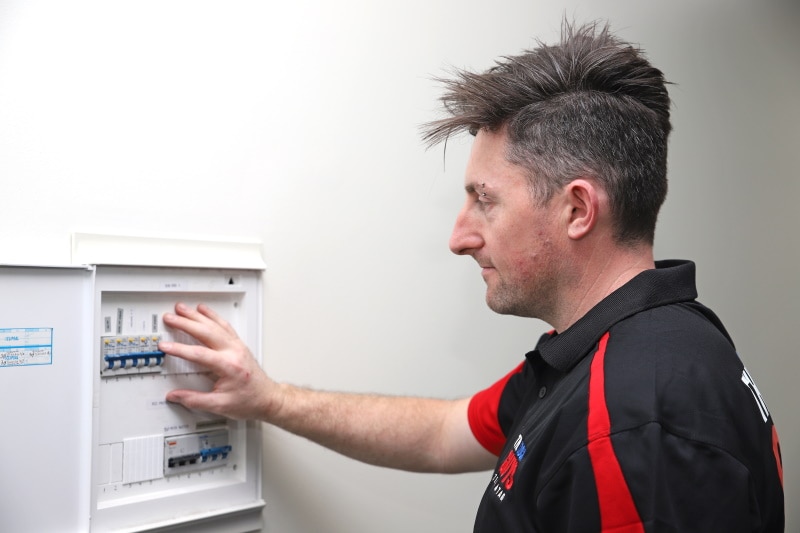An RCD (residual current device) is a life-saving device that prevents you from receiving a lethal electric shock if you come into contact with something live, such as a bare wire. It can also guard against electrical fires to some extent. Ordinary fuses and circuit breakers cannot give the same level of personal safety as RCDs.
Types of RCD-
1. Fixed RCDs
2. Socket-Outlet RCDs
3. Portable RCDs
What is work of RCD?
An RCD is a sensitive safety device that immediately shuts off electricity if it detects a problem. The purpose of an RCD is to protect against electrocution and fire caused by earth faults. For instance, if you accidently cut through the cable while mowing the grass and touched the exposed live wires, or if a malfunctioning item overheats, causing electric current to flow to earth.
Working of RCD:
The electric current running through one or more circuits protected by an RCD is constantly monitored. If the RCD detects electricity travelling in an unforeseen direction, such as through a person who has touched a live item, it will instantly shut down the circuit, lowering the chance of death or serious harm.
RCDs can help protect you from electric shock in potentially harmful areas such as bathrooms and gardens, and there are many different types of RCDs to choose from to ensure you are always as safe as possible.
Fixed RCDs are around 97 percent reliable, according to our research. If they are tested on a regular basis, this improves. The risk of electric shock to you and your family is reduced if you have fixed RCD protection. It can also help to protect your property from fires caused by defective wiring or appliances.
Remember that while RCD protection lowers the chance of death or damage from electric shock, it does not eliminate the need to exercise caution. To protect the safety of you, your family, and your house, have your wiring tested at least once every ten years. If you see a problem with your wiring or an appliance, turn it off right once and call a licenced electrician.
Don't forget to test - RCDs, both fixed and socketed, should be tested every three months. Portable RCDs should be checked every time they are used, according to the manufacturers.
RCD testing is the process of "tripping" your RCD in a safe manner to check that it will respond fast in the event of an electrical incident. Safety switch testing is another name for this. Your RCD is programmed to trip, or turn off, all power to that circuit.
Keep in mind that if you press the test button for a long period and the RCD does not turn off the power, you should seek help from a licenced electrician.
Visit Us:
https://thelocalguystestandtag.com.au
https://www.facebook.com/thelocalguystestandtag
https://twitter.com/guys_local
https://www.instagram.com/thelocalguys_test_and_tag/





Comments